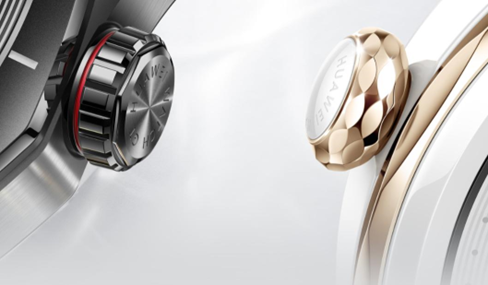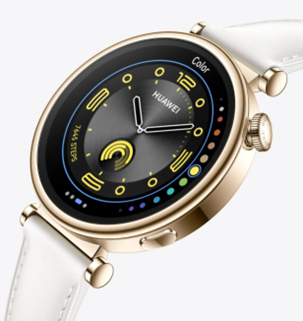Blood
pressure is a critical factor in maintaining good health, but it is also one
that can easily be overlooked in the hustle and bustle of modern life. High
blood pressure, or hypertension, affects millions of people worldwide and is a
leading risk factor for heart disease, stroke, and kidney failure.
Understanding the various factors that contribute to high blood pressure is
essential in today’s fast-paced world. From the constant flow of information
and digital distractions to unhealthy lifestyle habits, many elements in modern
life can have a significant impact on our cardiovascular health. This article
explores how modern life influences blood pressure and offers practical tips
for managing and preventing hypertension.

The Influence of Technology on Blood Pressure
The Impact of Constant Connectivity on Stress
One
of the most significant contributors to high blood pressure in today’s world is
stress, particularly stress caused by constant connectivity. The ability to
stay in touch with others, manage work responsibilities, and receive
notifications at all times has led to a state of perpetual alertness. While
this may seem beneficial in some contexts, it can be detrimental to our health.
Constant emails, social media updates, and work-related notifications keep our
bodies in a heightened state of stress, triggering the release of stress
hormones like cortisol and adrenaline. These hormones increase heart rate and
constrict blood vessels, which results in higher blood pressure. Over time,
chronic stress from constant connectivity can contribute to long-term hypertension.
How Smart Devices Can Help Track Blood Pressure
In
the digital age, many people are turning to smart devices to help monitor their
health, including blood pressure. Devices like the Huawei Watch D2 offer
advanced features such as dynamic blood pressure monitoring, which can track
blood pressure 24/7, even while you sleep. This watch continuously monitors
your systolic and diastolic pressure during the day, at night, and even
provides reports on your overall blood pressure trends over the past 24 hours.
With its easy-to-use interface, it provides instant feedback, making it easier
to recognize any significant changes. By regularly checking your blood
pressure, you can take proactive steps to reduce it before it becomes a serious
issue. The Huawei Watch D2 also integrates with the HUAWEI Health app, giving
users three months of premium membership, which offers personalized health
advice, including tips on exercise, sleep monitoring, and ECG analysis.
Sedentary Lifestyles and Blood Pressure Concerns
Sitting for Long Hours and Its Impact on Heart
Health
Another
significant issue in modern life is the sedentary lifestyle that many people
lead, particularly those working in office environments. Long hours of sitting,
coupled with limited physical activity, are associated with an increased risk
of high blood pressure. Research shows that people who sit for more than 8
hours a day without moving have a higher risk of developing hypertension. In
addition, prolonged sitting can lead to weight gain and other cardiovascular
problems, which further increase the risk of high blood pressure. The key to
counteracting this is to incorporate regular physical activity into your day,
whether it’s through stretching, taking short walks, or using a standing
desk.
How to Stay Active in a Digital Age
In
today’s digital age, it can be challenging to maintain an active lifestyle,
especially with the convenience of technology. However, technology can also be
used to our advantage when it comes to staying active. Smart devices, such as
fitness trackers and health apps, can encourage movement by tracking steps,
heart rate, and exercise progress. Many modern phones and smartwatches also
offer reminders to get up and move every hour, which helps prevent long periods
of sitting. In addition to using digital tools, finding opportunities to move
throughout the day is important. Whether it’s walking while taking a phone
call, using the stairs instead of the elevator, or dedicating time to an
exercise routine, these small changes can add up and help maintain a healthy
blood pressure.
Fast Food Culture and Its Role in High Blood Pressure
The Link Between Processed Foods and Blood
Pressure
The
rise of fast food and processed food culture has also contributed to the
increasing prevalence of high blood pressure. Fast foods are typically high in
sodium, unhealthy fats, and calories, all of which can contribute to
hypertension. Excessive salt intake is particularly harmful as it can cause the
body to retain fluid, which increases the volume of blood in the circulatory
system, leading to higher pressure on the arterial walls. Moreover, the high
levels of trans fats and saturated fats in processed foods can damage the blood
vessels, making them less elastic and more prone to high blood pressure.
Studies have shown that reducing the intake of processed foods and replacing
them with a diet rich in fruits, vegetables, whole grains, and lean proteins can
significantly lower blood pressure levels.
Practical Tips for Healthy Eating in a Busy
Lifestyle
In
a fast-paced world, healthy eating can be a challenge. However, with a little
planning and effort, it is possible to maintain a healthy diet even with a busy
schedule. Start by incorporating more fruits, vegetables, and whole grains into
your meals. These foods are rich in fiber and potassium, both of which are
essential for managing blood pressure. In addition, limiting the intake of
processed foods and reducing salt consumption is key to maintaining healthy
blood pressure.You might also wonder, "can coffee cause high blood pressure?" While moderate coffee consumption
is generally safe for most people, excessive caffeine intake can temporarily
increase blood pressure. It's best to limit your coffee consumption or switch
to decaffeinated options if you're concerned about its effects on your blood
pressure.

Sleep and Blood Pressure: The Underrated Connection
How Poor Sleep Affects Your Blood Pressure
Sleep
plays a crucial role in regulating blood pressure, and poor sleep can have a
significant impact on your cardiovascular health. Studies have shown that
individuals who suffer from chronic sleep deprivation or poor sleep quality are
at an increased risk of developing hypertension. During deep sleep, the body’s
blood pressure naturally lowers, allowing the heart and blood vessels to rest.
When you don’t get enough sleep, your body produces higher levels of stress
hormones, which can lead to elevated blood pressure. Furthermore, conditions
like sleep apnea, where breathing repeatedly stops and starts during sleep, are
strongly associated with high blood pressure.
Strategies for Improving Sleep Quality
Improving
sleep quality is essential for maintaining healthy blood pressure. Start by
establishing a regular sleep routine, going to bed, and waking up at the same
time every day. Ensure your sleep environment is comfortable, quiet, and cool
to promote restful sleep. Reducing screen time before bed and engaging in
relaxation techniques, such as reading or meditation, can also help improve
sleep quality. If you continue to struggle with sleep issues, consider
consulting a healthcare professional to rule out conditions like sleep apnea or
other sleep disorders that may be contributing to high blood pressure.
Conclusion
Managing
blood pressure in today’s fast-paced world requires a multi-faceted approach,
combining healthy lifestyle habits with modern technology. Regular monitoring
of your blood pressure with smart devices like the Huawei Watch D2 can provide
valuable insights into your health and help you take proactive steps to
maintain healthy levels. Additionally, staying active, eating a balanced diet,
managing stress, and getting quality sleep are all essential components of
blood pressure management. By understanding the factors that affect blood pressure
and implementing simple strategies to improve your lifestyle, you can
successfully maintain your cardiovascular health, even in the midst of a busy
and stressful modern life.
